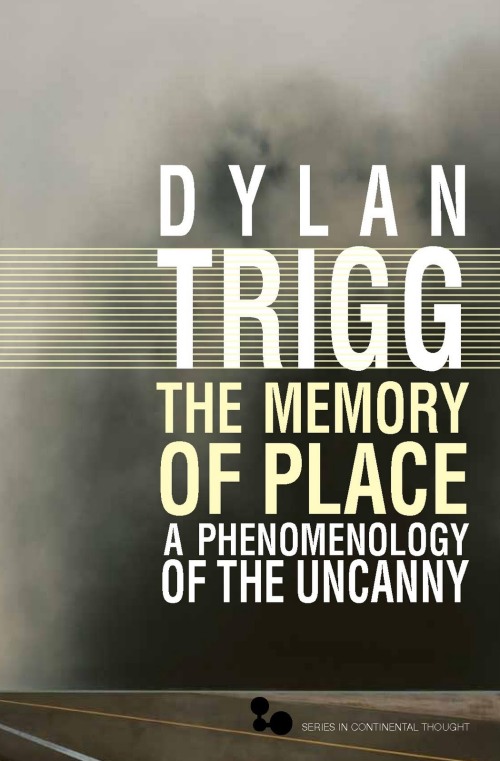 Just a few days ago, I linked to Adrian Ivakhiv’s article “The Anthrobiogeomorphic Machine: Stalking the Zone of Cinema” in the most recent issue of Film-Philosophy. Another highlight in that issue comes from Dylan Trigg, a researcher at the Centre de Recherche en Epistémologie Appliquée in Paris, whose blog Side Effects I just recently discovered. Trigg’s paper, “The Return of the New Flesh: Body Memory in David Cronenberg and Merleau-Ponty,” can be found here; and here is the abstract:
Just a few days ago, I linked to Adrian Ivakhiv’s article “The Anthrobiogeomorphic Machine: Stalking the Zone of Cinema” in the most recent issue of Film-Philosophy. Another highlight in that issue comes from Dylan Trigg, a researcher at the Centre de Recherche en Epistémologie Appliquée in Paris, whose blog Side Effects I just recently discovered. Trigg’s paper, “The Return of the New Flesh: Body Memory in David Cronenberg and Merleau-Ponty,” can be found here; and here is the abstract:
From the “psychoplasmic” offspring in The Brood (1979) to the tattooed encodings in Eastern Promises (2007), David Cronenberg presents a compelling vision of embodiment, which challenges traditional accounts of personal identity and obliges us to ask how human beings persist through different times, places, and bodily states while retaining their sameness. Traditionally, the response to this question has emphasised the importance of cognitive memory in securing the continuity of consciousness. But what has been underplayed in this debate is the question of how the body can both reinforce and disrupt the grounds for our personal identity. Accordingly, by turning the notoriously “body conscious” work of Cronenberg, especially his seminal The Fly (1986), I intend to pursue the relation between identity and embodiment in the following way.
First, by augmenting John Locke’s account of personal identity with a specific appeal to the body, I will explore how Cronenberg’s treatment of embodiment as a site of independent experience challenges the idea we have that cognitive memory is the guarantor of personal identity. Cronenberg’s treatment of the “New Flesh” posits an account of the body that undermines the Cartesian and Lockean account of personal identity as being centred on the mind. In its place, I will argue that Cronenberg shows us how the body establishes a personality independently of the mind.
Second, through focusing explicitly on body memory, I will explore how we, as embodied subjects, relate to our bodies in a Cronenbergian world. Approaching this relation between memory and embodiment via the phenomenology of Merleau-Ponty, I will argue that memory is at the heart of Cronenberg’s vision of body horror. I will conclude by suggesting that far from generating unity, Cronenberg’s vision of embodiment and identity is diseased (often literally) by a memory that cannot be assimilated by cognition. The result of this failure to assimilate body memory, is that memory itself occupies the role of the monster within.
As evidenced on his blog, Trigg is doing some really fascinating phenomenological work (for example, a great post here on “The Language of Hauntings”), and his book, The Memory of Place: A Phenomenology of the Uncanny, is due out in 2012 (available now for pre-order). Here’s the publisher’s blurb for the book:
From the frozen landscapes of the Antarctic to the haunted houses of childhood, the memory of places we experience is fundamental to a sense of self. Drawing on influences as diverse as Merleau-Ponty, Freud, and J. G. Ballard, The Memory of Place charts the memorial landscape that is written into the body and its experience of the world.
Dylan Trigg’s The Memory of Place offers a lively and original intervention into contemporary debates within “place studies,” an interdisciplinary field at the intersection of philosophy, geography, architecture, urban design, and environmental studies. Through a series of provocative investigations, Trigg analyzes monuments in the representation of public memory; “transitional” contexts, such as airports and highway rest stops; and the “ruins” of both memory and place in sites such as Auschwitz. While developing these original analyses, Trigg engages in thoughtful and innovative ways with the philosophical and literary tradition, from Gaston Bachelard to Pierre Nora, H. P. Lovecraft to Martin Heidegger. Breathing a strange new life into phenomenology, The Memory of Place argues that the eerie disquiet of the uncanny is at the core of the remembering body, and thus of ourselves. The result is a compelling and novel rethinking of memory and place that should spark new conversations across the field of place studies.
Edward S. Casey, Distinguished Professor of Philosophy at Stony Brook University and widely recognized as the leading scholar on phenomenology of place, calls The Memory of Place “genuinely unique and a signal addition to phenomenological literature. It fills a significant gap, and it does so with eloquence and force.” He predicts that Trigg’s book will be “immediately recognized as a major original work in phenomenology.”
I highly recommend checking out Dylan Trigg’s blog and his article in Film-Philosophy, and I look forward to reading his wonderful-sounding book!